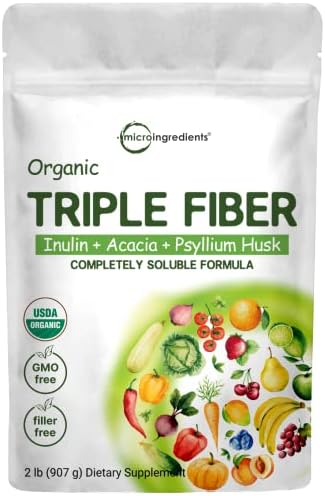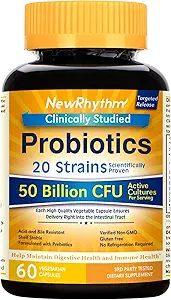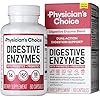Gut health has become an increasingly popular topic in the wellness and nutrition space, and for good reason. The health of your gut affects much more than just digestion—it plays a critical role in your immune system, mental health, and even your skin. In this article, we’ll explore what gut health is, why it is important, and the best ways to improve it naturally, including the role of supplements.

What is Gut Health?
Gut health refers to the balance and function of your digestive system, particularly the microbiome. The microbiome is a community of trillions of bacteria, viruses, fungi, and other microorganisms that live in your gut. These microbes play an essential role in digesting food, absorbing nutrients, producing essential vitamins, and protecting against harmful pathogens.
A healthy gut is one where these microorganisms are balanced and functioning optimally. An imbalance, often called dysbiosis, can lead to digestive problems, weakened immunity, and a variety of health issues such as inflammation, bloating, and food intolerances.
Why is Gut Health Important?
Gut health is far more than just a matter of digestion. The gut is sometimes referred to as the “second brain” due to its deep connection with the brain, a relationship known as the gut-brain axis. This connection explains why digestive health can have a direct impact on your mood, stress levels, and even mental health disorders like anxiety and depression.
A healthy gut is also essential for:
- Immune Function: Around 70% of your immune system is housed in your gut. A balanced microbiome helps to regulate immune responses and prevent infections.
- Nutrient Absorption: Your gut is responsible for absorbing nutrients from the foods you eat. If your gut is unhealthy, it can affect your ability to absorb vitamins, minerals, and other essential nutrients.
- Inflammation Control: A healthy gut reduces systemic inflammation, which is linked to a variety of chronic health conditions, such as heart disease, diabetes, and autoimmune disorders.
- Skin Health: The state of your gut can influence your skin. Imbalances in gut bacteria are often linked to conditions like acne, eczema, and rosacea.
Best Ways to Improve Gut Health Naturally

Improving your gut health is a combination of lifestyle changes, dietary adjustments, and supplementation. Here are the most effective natural strategies for enhancing gut health:
1. Eat a Fiber-Rich Diet
Fiber is crucial for maintaining a healthy gut, as it helps to feed beneficial gut bacteria. Foods high in fiber include fruits, vegetables, whole grains, legumes, nuts, and seeds. These fiber-rich foods promote regular bowel movements and support the growth of healthy bacteria in the gut.
2. Incorporate Probiotics
Probiotics are live bacteria and yeasts that are beneficial to your gut. They can help restore the natural balance of gut microbes and improve overall gut health. Foods naturally rich in probiotics include yogurt, kefir, sauerkraut, kimchi, miso, and kombucha. If you prefer supplements, look for one containing a variety of strains, as diversity in probiotics can enhance their effectiveness.
3. Prebiotics Are Essential
Prebiotics are types of fiber that serve as food for beneficial bacteria in the gut. Unlike probiotics, prebiotics are not live bacteria but are crucial for feeding the microbes that help maintain a healthy gut. Common prebiotic foods include garlic, onions, bananas, asparagus, and leeks. Many probiotic supplements also contain prebiotics, known as synbiotics, for optimal gut health.
4. Reduce Sugar and Processed Foods
High sugar and processed foods can upset the balance of your gut bacteria, promoting the growth of harmful bacteria and yeast. Cutting down on sugary snacks, refined grains, and processed foods can reduce inflammation and support the growth of good bacteria.
5. Stay Hydrated
Drinking plenty of water helps to maintain the mucosal lining of your intestines and aids in digestion. Staying hydrated can also prevent constipation, which can cause discomfort and disrupt gut function.
6. Manage Stress
Chronic stress can have a negative impact on gut health by disrupting the gut-brain axis. Practicing relaxation techniques such as meditation, yoga, deep breathing exercises, or simply getting enough sleep can help reduce stress levels and promote a healthier gut.
Supplements for Improving Gut Health
While lifestyle changes and dietary adjustments are key for improving gut health, supplements can provide additional support, especially if you have specific concerns. Here are some of the most effective supplements for promoting gut health:

1. Probiotics
As mentioned, probiotics are live bacteria that can support gut health by restoring balance to the microbiome. They are available in a variety of forms, including capsules, powders, and fermented foods. Probiotic supplements containing multiple strains of bacteria, such as Lactobacillus and Bifidobacterium, can be particularly beneficial.
You can purchase probiotics here.
2. Prebiotic Fiber
Prebiotic fiber supplements can help nourish beneficial gut bacteria. Ingredients like inulin, fructooligosaccharides (FOS), and galactooligosaccharides (GOS) are common prebiotics found in supplements. These fibers support the growth of good bacteria, leading to a healthier gut microbiome. You can purchase prebiotic fiber here.
3. L-Glutamine
L-glutamine is an amino acid that supports the gut lining and can help repair damage to the digestive tract, particularly for people suffering from conditions like leaky gut syndrome. It is commonly used by individuals with digestive issues to improve gut barrier function. You can purchase L-glutamine here.

4. Digestive Enzymes
Digestive enzymes are supplements that help break down food more efficiently, making it easier for your body to absorb nutrients. These supplements are often recommended for people with digestive discomfort, such as bloating or indigestion.
You can purchase digestive enzymes here.
5. Collagen Peptides
Collagen supports the gut lining and helps to maintain its structure, potentially improving gut permeability. Collagen supplements are often taken in powder form and can be easily added to beverages or smoothies. You can purchase collagen here.
6. Fiber Supplements
If you’re not getting enough fiber from food, fiber supplements such as psyllium husk or acacia fiber can help regulate digestion, prevent constipation, and support a healthy microbiome. You can purchase fiber supplements here.
7. Curcumin
Curcumin, the active compound in turmeric, is known for its anti-inflammatory properties. It may help reduce inflammation in the gut, which is linked to conditions like irritable bowel syndrome (IBS) and inflammatory bowel disease (IBD). It also supports the growth of beneficial bacteria. You can purchase curcumin here.
Final Thoughts
Gut health is critical for overall well-being, and improving it can have far-reaching effects on your digestion, immune function, mental health, and more. By focusing on a fiber-rich diet, incorporating probiotics and prebiotics, reducing processed foods, and managing stress, you can naturally support a balanced microbiome. For those who need extra help, certain supplements, including probiotics, prebiotic fiber, digestive enzymes, and L-glutamine, can further enhance gut health.
As always, it’s important to consult with a healthcare professional before adding supplements to your routine, especially if you have existing health conditions or are taking medications. With the right approach, you can improve your gut health and experience a better quality of life.